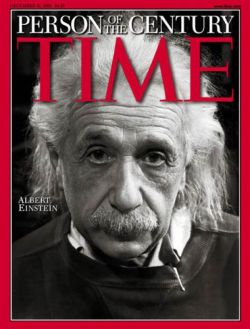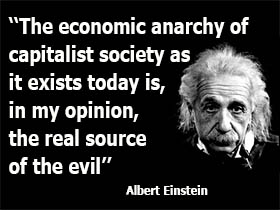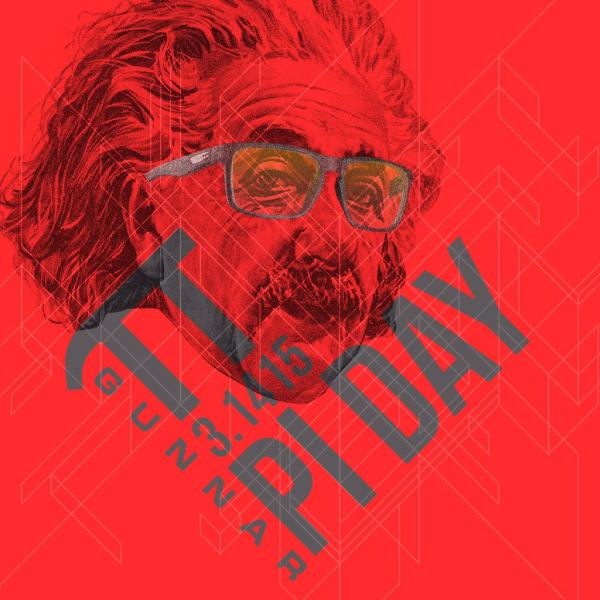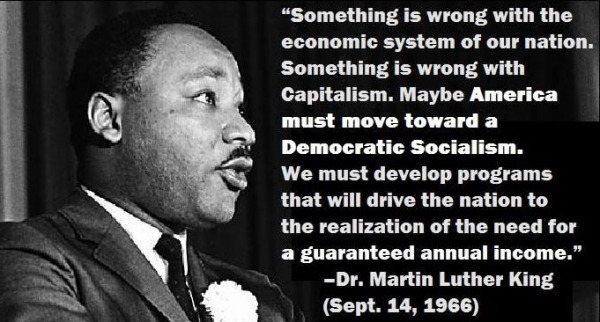Albert Einstein was born on this day in 1879.
TIME: He was the embodiment of pure intellect, the bumbling professor with the German accent, a comic cliche in a thousand films. Instantly recognizable, like Charlie Chaplin’s Little Tramp, Albert Einstein’s shaggy-haired visage was as familiar to ordinary people as to the matrons who fluttered about him in salons from Berlin to Hollywood. Yet he was unfathomably profound — the genius among geniuses who discovered, merely by thinking about it, that the universe was not as it seemed.
Even now scientists marvel at the daring of general relativity (“I still can’t see how he thought of it,” said the late Richard Feynman, no slouch himself). But the great physicist was also engagingly simple, trading ties and socks for mothy sweaters and sweatshirts. He tossed off pithy aphorisms (“Science is a wonderful thing if one does not have to earn one’s living at it”) and playful doggerel as easily as equations. Viewing the hoopla over him with humorous detachment, he variously referred to himself as the Jewish saint or artist’s model. He was a cartoonist’s dream come true.
said the late Richard Feynman, no slouch himself). But the great physicist was also engagingly simple, trading ties and socks for mothy sweaters and sweatshirts. He tossed off pithy aphorisms (“Science is a wonderful thing if one does not have to earn one’s living at it”) and playful doggerel as easily as equations. Viewing the hoopla over him with humorous detachment, he variously referred to himself as the Jewish saint or artist’s model. He was a cartoonist’s dream come true.
Much to his surprise, his ideas, like Darwin’s, reverberated beyond science, influencing modern culture from painting to poetry. At first even many scientists didn’t really grasp relativity, prompting Arthur Eddington’s celebrated wisecrack (asked if it was true that only three people understood relativity, the witty British astrophysicist paused, then said, “I am trying to think who the third person is”). To the world at large, relativity seemed to pull the rug out from under perceived reality. And for many advanced thinkers of the 1920s, from Dadaists to Cubists to Freudians, that was a fitting credo, reflecting what science historian David Cassidy calls “the incomprehensiveness of the contemporary scene–the fall of monarchies, the upheaval of the social order, indeed, all the turbulence of the 20th century.” MORE
ALBERT EINSTEIN: The economic anarchy of capitalist society as it exists today is, in my opinion, the real source of the evil. We see before us a huge community of producers the members of which are unceasingly striving to deprive each other of the fruits of their collective labor—not by force, but on the whole in faithful compliance with legally established rules. In this respect, it is important to realize that the means of production—that is to say, the entire productive capacity that is needed for producing consumer goods as well as additional capital goods—may legally be, and for the most part are, the private property of individuals.
For the sake of simplicity, in the discussion that follows I shall call “workers” all those who do not  share in the ownership of the means of production—although this does not quite correspond to the customary use of the term. The owner of the means of production is in a position to purchase the labor power of the worker. By using the means of production, the worker produces new goods which become the property of the capitalist. The essential point about this process is the relation between what the worker produces and what he is paid, both measured in terms of real value. Insofar as the labor contract is “free,” what the worker receives is determined not by the real value of the goods he produces, but by his minimum needs and by the capitalists’ requirements for labor power in relation to the number of workers competing for jobs. It is important to understand that even in theory the payment of the worker is not determined by the value of his product.
share in the ownership of the means of production—although this does not quite correspond to the customary use of the term. The owner of the means of production is in a position to purchase the labor power of the worker. By using the means of production, the worker produces new goods which become the property of the capitalist. The essential point about this process is the relation between what the worker produces and what he is paid, both measured in terms of real value. Insofar as the labor contract is “free,” what the worker receives is determined not by the real value of the goods he produces, but by his minimum needs and by the capitalists’ requirements for labor power in relation to the number of workers competing for jobs. It is important to understand that even in theory the payment of the worker is not determined by the value of his product.
Private capital tends to become concentrated in few hands, partly because of competition among the capitalists, and partly because technological development and the increasing division of labor encourage the formation of larger units of production at the expense of smaller ones. The result of these developments is an oligarchy of private capital the enormous power of which cannot be effectively checked even by a democratically organized political society. This is true since the members of legislative bodies are selected by political parties, largely financed or otherwise influenced by private capitalists who, for all practical purposes, separate the electorate from the legislature. The consequence is that the representatives of the people do not in fact sufficiently protect the interests of the underprivileged sections of the population. Moreover, under existing conditions, private capitalists inevitably control, directly or indirectly, the main sources of information (press, radio, education). It is thus extremely difficult, and indeed in most cases quite impossible, for the individual citizen to come to objective conclusions and to make intelligent use of his political rights. MORE<


